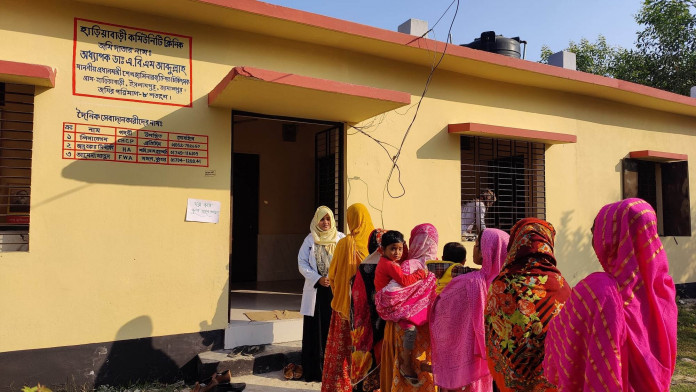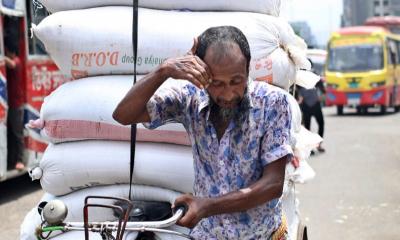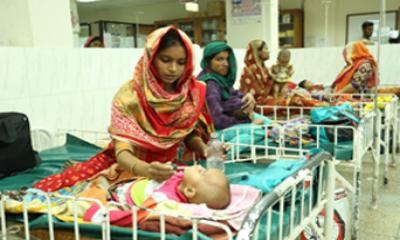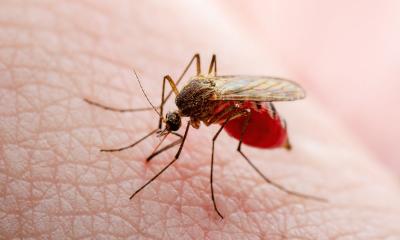Community clinics are working to ensure universal health care, the number is increasing to implement smart healthcare
- Prof. Dr. Samanta Lal Sen, Minister, Ministry of Health and Family Welfare
PM's Community Clinic concept has been recognized worldwide, with many countries working on our community clinic model
-Prof. Dr. Syed Modasser Ali, President, Community Clinic Health Support Trustee Board
Community Clinics are working as a trusted address to ensure mass healthcare. Father of the nation Bangabandhu Sheikh Mujibur Rahman started working with the concept of community health service first to ensure universal health service after the independence of the country. He said, through the development of community health care, health care will reach the marginalized people of the country. His contemporary ideas have been implemented by the hands of Prime Minister Sheikh Hasina.
On April 26, 2000, Prime Minister Sheikh Hasina started the journey of realizing the dream of the father of the nation by inaugurating Gimadanga Community Clinic in Patgati Union of Gopalganj district. That journey revolutionized community health care. The recognition of which has also come from the country and abroad.
World Health Organization experts said that Prime Minister Sheikh Hasina's novel idea of setting up community clinics has proved to be a breakthrough in Bangladesh's health system. People donate land to build community clinics and the government provides health care by providing infrastructure, manpower and medicine on that land. The international community also has great interest in the highly effective community clinic system in marginal healthcare of the country. Former UN Secretary-General Ban Ki-moon and former Director-General of the World Health Organization visited the village and visited the community clinic during their visit to Bangladesh.
A World Health Organization booklet on the success of community clinics is titled – Community Clinics – Health Revolution in Bangladesh. The slogan “Sheikh Hasina's Contribution, Community Clinic Saves Lives” is being used in the branding activities of the community clinic. But the Prime Minister felt that implementing community clinics was not easy. Before and after the independence of Bangladesh, the health care infrastructure was mainly urban-centric. But at that time 85 percent people lived in villages.
Father of the Nation Bangabandhu's dream was to provide healthcare at the grass root level. It was Bangabandhu who took the initiative to spread health care at the doorstep of the people i.e. across the country. In just 3 years in the war-torn country, he established 'Thana Health Complex' in every police station. He started a 10-bed hospital. But after he and his family were killed in the tragic murder of 75, no more importance was given to the health care of marginal people. After 21 years, soon after the formation of the Awami League government in the middle of 1996, the daughter of the father of the nation took the initiative to implement her father's dream - 'Healthcare for all'. She Gave birth to the novel concept of 'Community Clinic'.
But when the government changed, this successful health care program benefiting the people at the marginal was subjected to political vengeance. The BNP-Jamaat coalition government, after coming to power in 2001, shut down the community clinics due to political vendettas. The clinics were abandoned. Many buildings were destroyed. The clinics were closed until 2008. After assuming the responsibility of running the country in 2009, the Awami League government started the community clinic program again. Abandoned unusable buildings started renovation and construction of new buildings. The number of community clinics increased rapidly.
In 2018, Prime Minister Sheikh Hasina initiated the community clinic system into a legal framework. In 2018, an Act named 'Community Clinic Health Assistance Trust-2018' was enacted. This Act and the formation of the Board of Trustees created an opportunity to raise money to ensure the running of the clinic and financial expenses including salaries and allowances of the workforce. There are plans to build a total of 14,890 community clinics across the country. 14 thousand 318 have already been completed. Currently, 14 thousand 275 are in operation. One clinic has been set up for every 6000 people in rural townships. Clinics are planned to be located within a 20 to 30 minute walking distance of health services.
There are 13,667 community health care providers (CHCPs) working in community centers. Besides, another 651 people have been appointed to vacant posts. More than 30 basic services such as Manpower Maternal and Newborn Health Care, Immunization (Tuberculosis, Diphtheria, Whooping Cough, Polio, Smallpox, Measles, Hepatitis-B, and Pneumonia etc.) and provides treatment and advice for diseases. In the beginning, there was no delivery facility in the community clinic. But now more than three hundred community clinics of the country are providing normal delivery services. 32 types of medicines are given free of cost to people from community clinics. Indigent and poor diabetic patients are also getting free insulin.
The government takes more than Tk 300 crore of medicines from EDCL every year for free distribution. Local government institutions have been sponsoring community clinic activities.
Organizations such as the United Nations Organization and Development Cooperation Agency World Bank, JICA, UNICEF etc. are cooperating in the implementation of the activities of the Community Clinic through financial, technical and logistical supplies. Besides, various NGOs are working to improve the service quality of community clinics. According to Community Clinic Health Assistance Trust data, rural people received services from community clinics with more than 141 crore visits from 2009 to 2023.Most of them are women and children.
On an average, 38 clients receive services per day in each clinic. The role of local people in running community clinics is immense. The concerned Union Parishad Chairman is the Chief Patron of all the Community Clinics in the Union and the elected women members of the reserved seats are also acting as Patrons of the Community Clinics of the respective Union Colleges/Secondary Schools.
Professor Dr. Syed Modachher Ali, President of Community Clinic Health Support trustee Board, said about the current progress and future plans of community clinics in the country. He said, the community clinic is an innovative initiative of the Prime Minister. This is the first new idea in the health sector to ensure services to the people by involving the people. It is a unique example of Public Private Partnership.
Many countries around the world are working with our community clinic model to ensure health care at the marginal level. Community clinics are leading the health sector in achieving our Sustainable Development Goals. The value objective of community clinics is to ensure health care and well-being for all people of all ages by 2030. Health and Family Welfare Minister Prof. Dr. Samant Lal Sen said the concept of community clinic and ensuring smart healthcare, the idea of setting up community clinic and its expansion in Bangladesh is the brainchild of Prime Minister Sheikh Hasina.
As a result of this visionary thinking of the Prime Minister, health care has now gone to the very marginal level of Bangladesh. People are being given all basic services and free medicines through community clinics. Community clinics are playing a leading role in ensuring universal healthcare. Work is underway to further increase the number of community clinics in the country. Community clinics will ensure smart health care to build a developed and prosperous smart Bangladesh.
ZH






